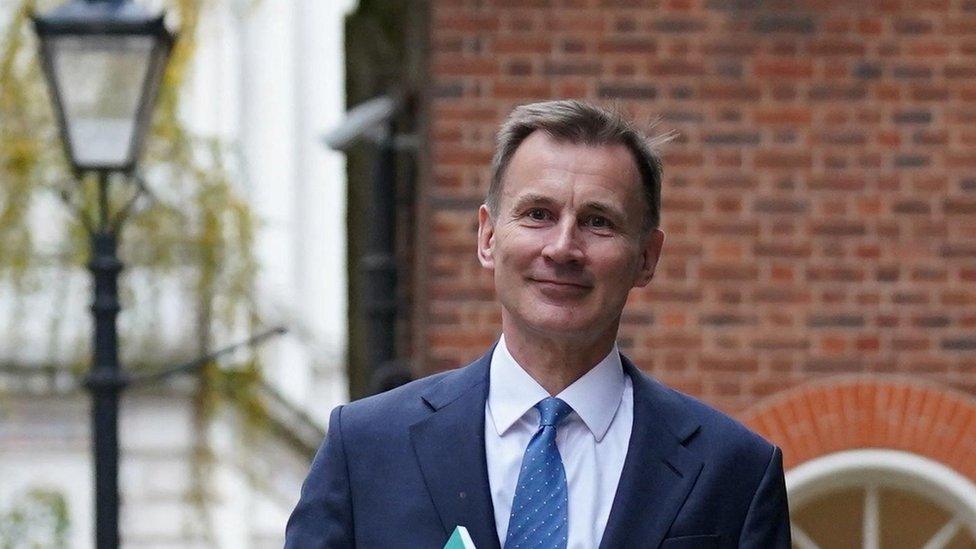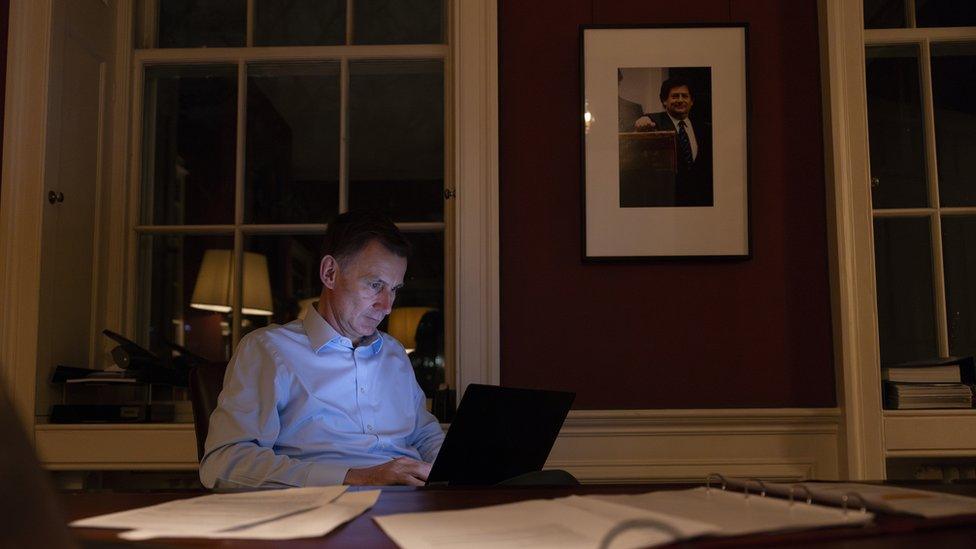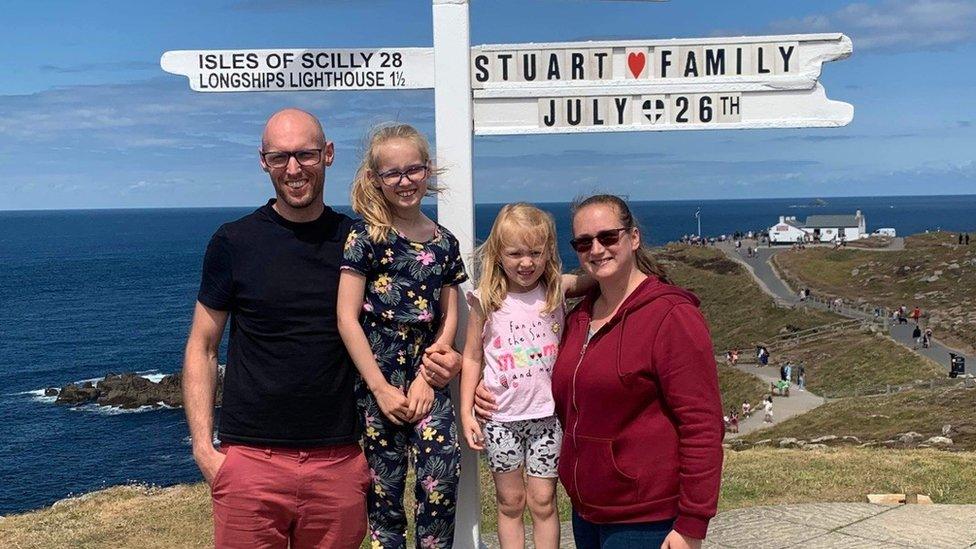The Budget is one of the government's last chances to move the political dial
- Published

For Chancellor Jeremy Hunt and Prime Minister Rishi Sunak, with an election imminent, there is a rapidly shrivelling number of big set moments where the levers and stage of government can be commanded to attempt change, economic and political.
Today is one of them. The backdrop? A stagnant economy and dire opinion poll ratings.
And both those things coupled with the fear among many Conservative MPs that swathes of the electorate have stopped listening - whatever they now say.
Whatever is announced later isn't going to shift the big picture.
The pandemic and the energy price shock caused by Russia's invasion of Ukraine prompted state interventions, such as furlough, that were so big you could see them from space.
And, to pay for them, there have been tax rises that, you guessed it, you can also see from space.
They are tax rises that have been delivered, in the main, by stealth.
Not by the chancellor standing up and doing something, announcing something. But by the opposite, doing nothing.
By freezing the thresholds at which various tax rates are paid, he has hauled millions of folk into paying higher rates of tax.
Economists call it "fiscal drag". It doesn't really matter what you call it. Millions of people can feel it.
Alongside the vast amount of money the government is paying in interest on the national debt, it gets us to an explanation as to why it feels like lots of tax is being paid but public services often don't feel like they are getting better.
Enter next, the Budget statement at lunchtime, and the politics of it.
The 2p National Insurance cut in the Autumn Statement didn't appear to shove the political dial. Will having a bash at the same idea work for the Conservatives second time round?
Some Tories would like to see an income tax cut. A better headline, they think. More understandable to more people.
But there's a catch: it's more expensive.
Labour reckon the government might have more room for manoeuvre for tax cuts than they are currently letting on, and may cut income tax too.
And Sir Keir Starmer will choose to agree with the tax cuts for workers. But, in so doing, create a spending headache for Labour if they win the general election.
Whatever the chancellor announces, expect the opposition to say the tax cuts don't make up for the tax rises that have contributed to people feeling squeezed.
It is back to that big picture, and how it will frame the day ahead, whatever emerges from the chancellor's red box.
Related topics
- Published6 March 2024

- Published7 March 2024

- Published7 March 2024
